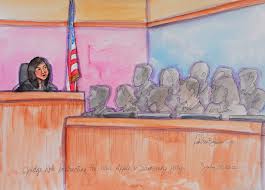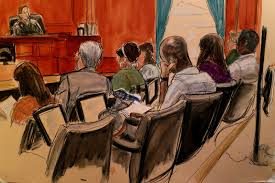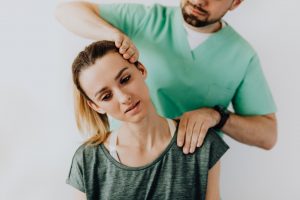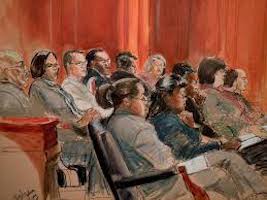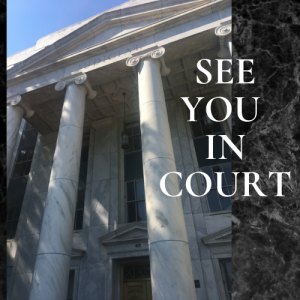

Videocameras are everywhere today. They have become a normal, integral part of our lives. Many of us carry a videocamera with us everyday, everywhere we go, on the cellphone we carry with us. We have “apps” on those cell phones that have as their soul purpose the easy viewing and sharing of videos. We can text videos to one another. It seems to be our instinct now that when we see something interesting, we immediately pull out our cell phone and start videotaping. Some people have made a lot of money selling those videotapes to advertisement companies to use in commercials. If you just “Google” “rat dragging pizza” you will find one such video that became so popular the person who filmed the video of the rat dragging the pizza sold the video and made alot of money from it. There is no question that many instances of police brutality and excessive force would never have even come to light if it were not for a videotape of it. The murder of Ahmaud Arbery is one such case. Ahmaud’s killers may very well have gotten away with their crime without any accountability in the criminal justice system had there been no video of the shooting. Many states are now making it mandatory that all officers wear “bodycams” that record an arrest or interaction with a citizen. In our prisons, correctional officers wear bodycams and even have numerous “use of force” cameras stashed away throughout a prison floor that the officers can quickly grab to film any interaction with an inmate. Some of us wear “Go Pros” on our bodies while we are engaging in some activity we believe is particularly athletic, so we can brag to our friends later “Look what I did!” Many of us have Ring videocameras on our front doors so we can see who is at our door when the doorbell rings or see when a package has been delivered. I even have a client who used a Ring videocamera in their daughter’s bedroom to record her nocturnal seizures. We have babycams that capture what infants do in their cribs when they are really supposed to be sleeping. Videocameras are in our elevators, in our parking garages and in our convenience stores. We have a “Furbo” which is a dog videocamera that records when our dog is barking or moving around or just sleeping. It even allows us to throw him a treat remotely from my cellphone from wherever I may be. I have to admit that “Furbo” still blows me away.
So it comes as no surprise that families who have loved ones living in nursing homes or long-term care homes would think it a good idea to place a camera in the room of their loved one to keep an eye on him or her while the family can not be there in person. Many families are, sometimes, rightfully worried that their loved one may be experiencing abuse at the hands of some of the employees of the nursing home. We are all familiar with cases where that has happened. Last year in a highly publicized case in Cobb County, Georgia an employee of an assisted living facility was tried for murder for the death of a 91 year old resident who died in 2017. The employee was found guilty of elder abuse but not of murder.
This begs the question: Is it legal to place a camera in your loved one’s room in an assisted care facility? Maybe you are thinking only a lawyer would even think about that. It seems so clear and obvious that yes, of course, you can place a camera in your loved one’s room. That’s the smart and loving thing to do. Who would possibly question that?
 Atlanta Injury Lawyer Blog
Atlanta Injury Lawyer Blog




